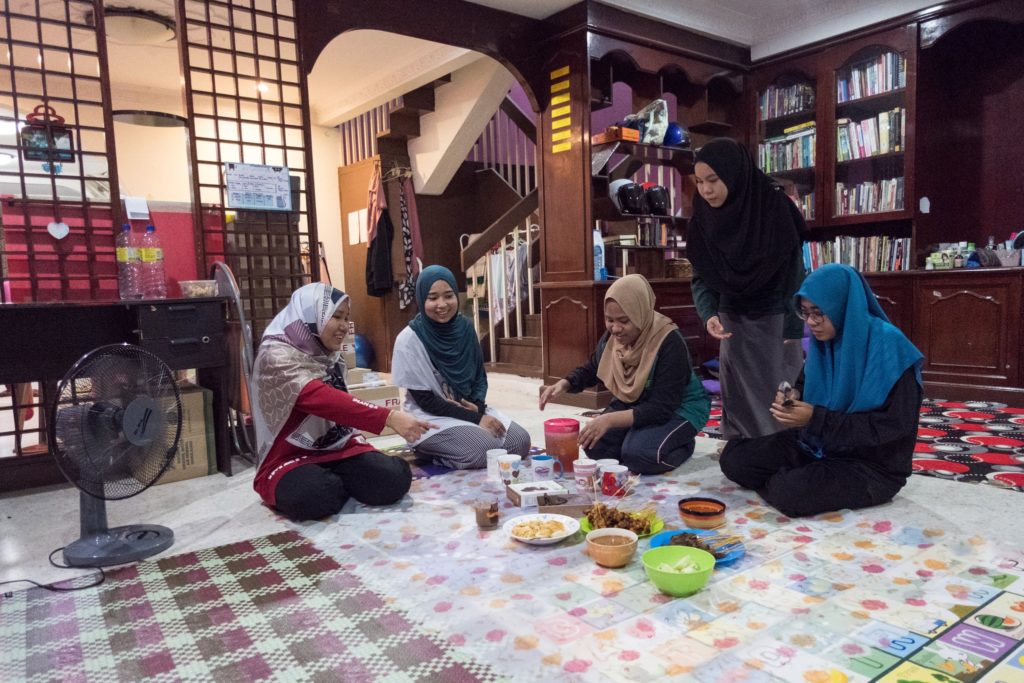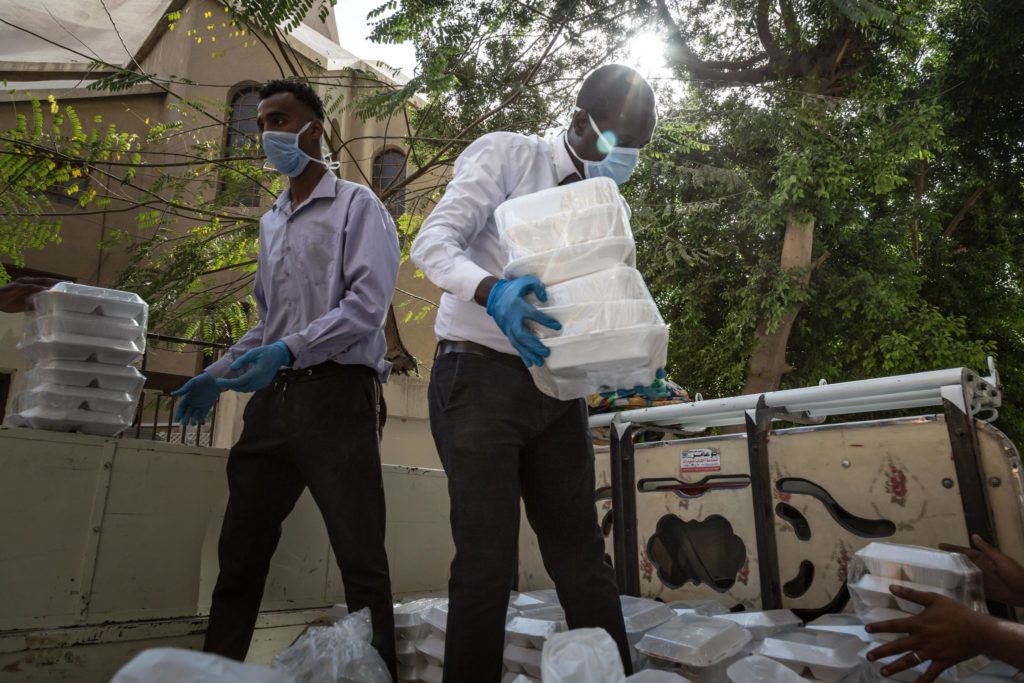By Sally Jo Gilbert de Vargas
It was in the month of Ramadan that the Qur’an was revealed as a guidance for humankind.” (Qur’an 2:185)
“Allah intends for you ease and does not intend for you hardship, and wants for you to complete the period [of fasting] and to glorify Allah for that to which He has guided you; and perhaps you will be grateful.” (Qur’an 2:185)
I first started fasting for Ramadan over 15 years ago, when I heard a report on NPR about how some 1.5 billion Muslims all over the world were fasting as a spiritual practice to celebrate the Holy Month when the Qur’an was first revealed to the Prophet Mohammad in 610 CE. I was so touched by the fact that so many people all over the world were doing this intense practice, that I decided, although I was not a Muslim, I wanted to join their ranks and see what the experience would teach me. I also felt like I was acting in solidarity with Muslims, who at this time were being berated by our country’s leadership and treated as if they were all criminals and terrorists. I knew this couldn’t possibly be true. I wanted an experiential taste of the spiritual dimensions of Islam.

KUALA LUMPUR Housemates breaking fast together in Malaysia.
Credit: Alexandra Radu for The New York Times
I have been fasting every Ramadan since then, and yes, I have gotten a real taste of this spiritual practice, so much so that I now fast once a week all year long, to keep me in remembrance of the deep significance of this practice. Each time I fast I learn more about the meaning of the practice and what it holds for me as a spiritual seeker.

CAIRO Distributing food to the needy. Credit: Sima Diab for The New York Times
I have learned that fasting is not just about abstaining from food, water, and other addictions. It’s not just about self-discipline and self-denial. It is about purifying one’s thoughts, words and deeds, and moving closer to a connection with Divinity. One of my very favorite stories about the Prophet Mohammad takes place during Ramadan. The Prophet was in the company of a believer, a woman, who began to gossip about another person in a degrading, disrespectful way. The Prophet heard her rampage, and brought the woman a plate of food. The woman said, “Why are you offering me food? You know it is Ramadan and I am fasting.” The Prophet replied, “No, in fact you are not fasting. You are engaging in harmful and disrespectful speech about others, so you may as well not be fasting.” Muslims are fasting not just from food, but from behaviors that we know are harmful to others, that we may be engaging in far more often than we admit to ourselves. Can we become aware of our tendencies to act in ways that are unbecoming of us? Can we control the tendencies of our ego to raise ourselves above others? During Ramadan, we are challenged to become more generous, more merciful, more kind and more loving than usual. We are asked to feed the poor, express gratitude to Allah for all that we have been given, and to put others’ needs ahead of our own. We realize through experience how much more food we eat than we really need most of the time, and how much more comforts we have than we generally feel grateful for. Ramadan also changed my relationship with water. During my fasting, I crave water more than food. Before I started fasting, water was just an ordinary liquid, something to drink now and then, if I remembered. Now every time I take a drink of water, whether I have been fasting or not, I thank Allah for the gift of clean, clear water. It is such a precious gift! May we never forget all that we have been freely and generously given!

